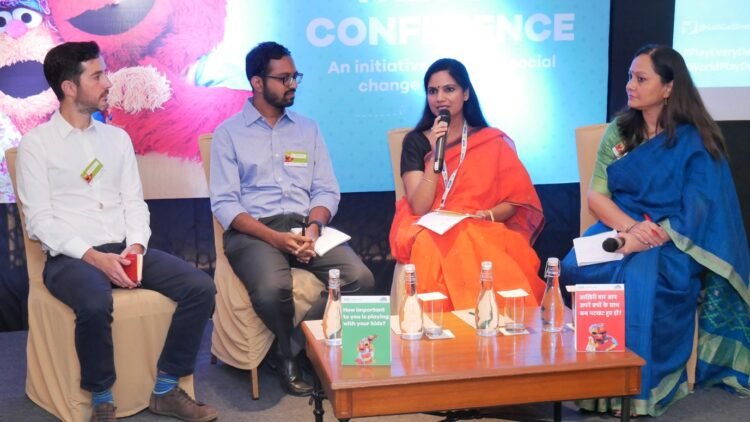NEW DELHI: Sesame Workshop India Trust and LEGO Foundation marked the celebration of the World Play Day by hosting the Play Conference in Delhi. The conference was aimed at shedding light on how parent-child play is linked with boosting creativity, learning and development of children aged 3-8 years.
Sesame Workshop implemented Play Every Day, a program designed to help vulnerable communities in India, South Africa and Mexico to challenge caregiver misperceptions such as “play is a waste of time” and “kids need expensive toys to play to boost their creativity”, and to establish that “guided play leads to improved child’s learning and development”. The intervention was implemented in India across 9 communities of Delhi with support from The LEGO Foundation.
Mythili Bector, OSD, Primary School Education, Directorate of Education, Government of NCT Delhi was the keynote speaker. The conference highlighted the design of the play-led intervention and showcased the impact evaluation of the program conducted by D3 Systems, a global social science research organization.
The program was implemented over 2 years, reaching 2,500 families in batches, with a 12-week intervention in low-resource communities. The intervention included play workshops with caregivers and children, community events like play fairs, street plays and videos on WhatsApp and social media platforms. The research evaluation of the intervention found improvements in social development, creativity and other learning outcomes of the children while also shifting the perceptions of parents and caregivers about play and its role in promoting learning and development outcomes.
Sonali Khan, Managing Director at Sesame Workshop India said “Our research findings show how the intervention has been able to shift the attitude of caregivers towards play, boost creativity of the children significantly, which also impacts their skills like communication and problem solving. It’s encouraging to hear from caregivers that they now make sure they take out time to play with their children because they can clearly see the value in it. In fact, the new evidence points out the higher need for such parent-led interventions.”




















